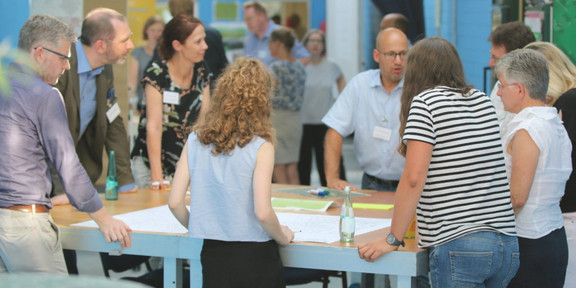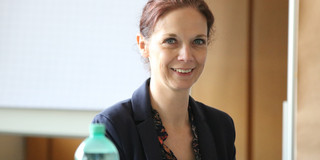iResilience project publishes article on co-planning for urban climate resilience in German “pnd – rethinking planning” journal

In order to be able to deal confidently with the consequences of climate change for inner-city neighborhoods, both the resilience and the capacity for change of the spaces and actors are needed. For this purpose, iResilience tested collaborative planning formats, aiming to initiate new collaborations between local actors and to address climate change on the ground. The research project brought together different groups of people within the framework of three so-called Reallabore in Dortmund and Cologne: representatives from the neighborhoods, economy, politics, administration and urban drainage as well as civic initiatives. Thus, different co-planning processes and formats were initiated.
In the local LAGs, the lowest cooperation level, identified problematic places or challenges were analyzed and tailor-made solutions were jointly prepared or implemented on a pilot basis. Using the LAGs Kasemattenstrasse für Morgen and the Wasser-Tanke as examples, the journal article illustrates the breadth of the format and the differences in the work processes. It then reflects on the extent to which the LAG concept is applicable in (project) practice, focusing on the relevance of the (climate) concern on site, the importance of an implementation perspective as well as the existence of a mediating authority within the LAG process.
The project stages in the various project formats required diverse preparations, with the city administrations and municipal drainage companies in the cities of Cologne and Dortmund jointly formulating the concept and other aspects of the co-planning process. The joint process enabled all participants in the Reallabor to plan, develop and test climate adaptation measures together. (Self-)testing is defined in the article as a key goal in co-planning.
The pnd article reports in detail about the LAGs, the process in the cities of Cologne and Dortmund, and the basic concept of LAGs and co-planning processes. The newly published article "Meeting climate change co-creatively! Collaborative formats of neighborhood-based climate precaution from the iResilience project" as well as the entire issue 2/2022 of pnd – rethinking planning are available on the website of Planung neu denken. The article is only available in German.
Links
- "Facing climate change co-creatively! Collaborative formats of neighborhood-based climate change mitigation from the iResilience project" | journal article.
- Issue 2/2022 "Transformative research meets urban development – application and learning processes" of the journal "pnd – rethinking planning" | pdf
- iResilience | project website
- project details of iResilience | sfs-website
- iResilience | Instagram account




![[Translate to English:] [Translate to English:]](/storages/zentraler_bilderpool/_processed_/a/f/csm_Kontakt_b86e8d8ecc.png)

